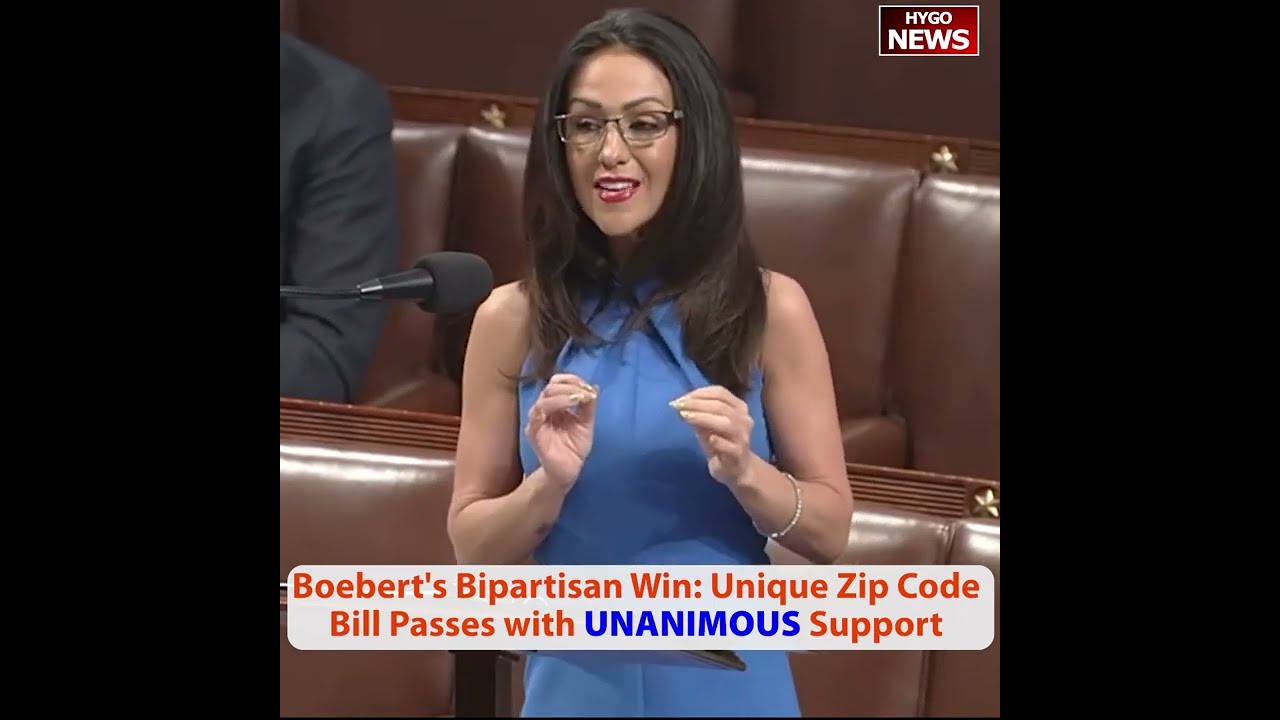U.S. Congresswoman Lauren Boebert (CO-03) successfully passed her bipartisan Zip Code bill, H.R. 8753, unanimously through the U.S. House of Representatives today. This bipartisan bill, which now heads to the U.S. Senate, benefits communities throughout the country by requiring the Postal Service to formally designate unique zip codes within their system for 51 specific cities and towns including the Colorado communities of Silver Cliff, Lone Tree, Castle Pines, Centennial, Severance, Greenwood Village, and Superior.
“After years of small cities and towns across America being ignored, I am very grateful and proud to have passed the bipartisan H.R. 8753 unanimously through the House to help 51 communities receive a unique zip code,” said Congresswoman Lauren Boebert (CO-03). “Residents in these communities will see clear benefits through a unique zip code for their town, from more of their tax revenue staying and benefitting their communities to improving the response times of first responders, which could save lives and reduce crime. We haven’t had an updated zip code bill pass through Congress in almost two decades. When small towns and communities in Colorado come to me, I listen, I take action, and I get things done for Coloradans and Americans. I urge the U.S. Senate to take up H.R. 8753 expeditiously and get this bipartisan bill that unanimously passed the House signed into law.”
Congresswoman Lauren Boebert introduced H.R. 8753, to direct the United States Postal Service to designate single, unique ZIP Codes for certain communities. Read the full text of the bill HERE.
The Zip Code system was instituted in America in the 1960s. The Postal Service utilizes the zip code system to deliver mail, but it is also heavily used and relied on by economic developers, insurers and emergency personnel amongst others. Communities that do not have a unique Zip Code often experience associated problems that include: loss of economic development, loss of sales tax, unjustifiably high insurance rates, tax remittance and commercial licensing issues, diminished public safety and reduced emergency response times, identity issues, and efficiency issues.
For example, first responders often go to the wrong streets and people needing help experience delays due to Zip Code issues that would be addressed by this legislation. Small towns and cities can petition the Postal Service for a new Zip Code but it is rarely approved and if it is denied they cannot appeal this decision for up to 10 years. Congress has intervened on these matters and last passed a law enacting four new Zip Codes through the Post Accountability and Enhancement Act of 2006.
https://www.facebook.com/HygoNewsUSA/videos/1119750289524205
Lauren Boebert’s Bipartisan Win: Unique Zip Code Bill Passes with UNANIMOUS Support

